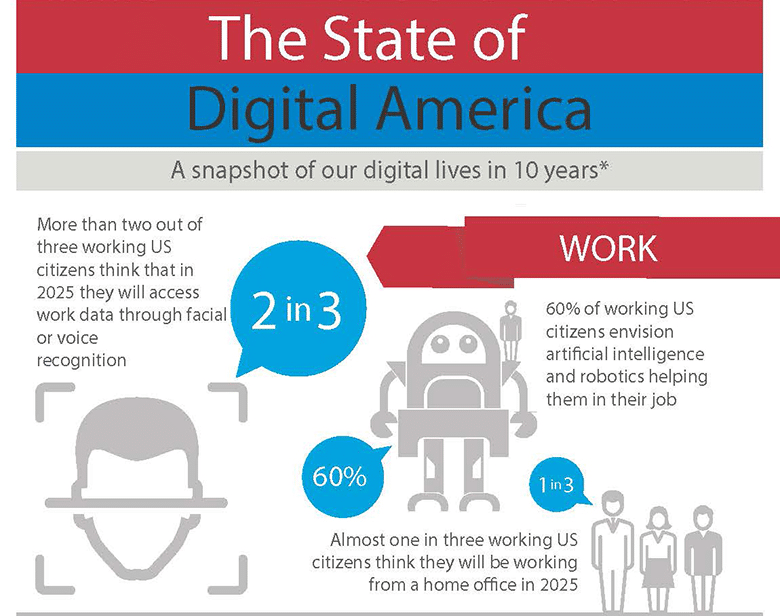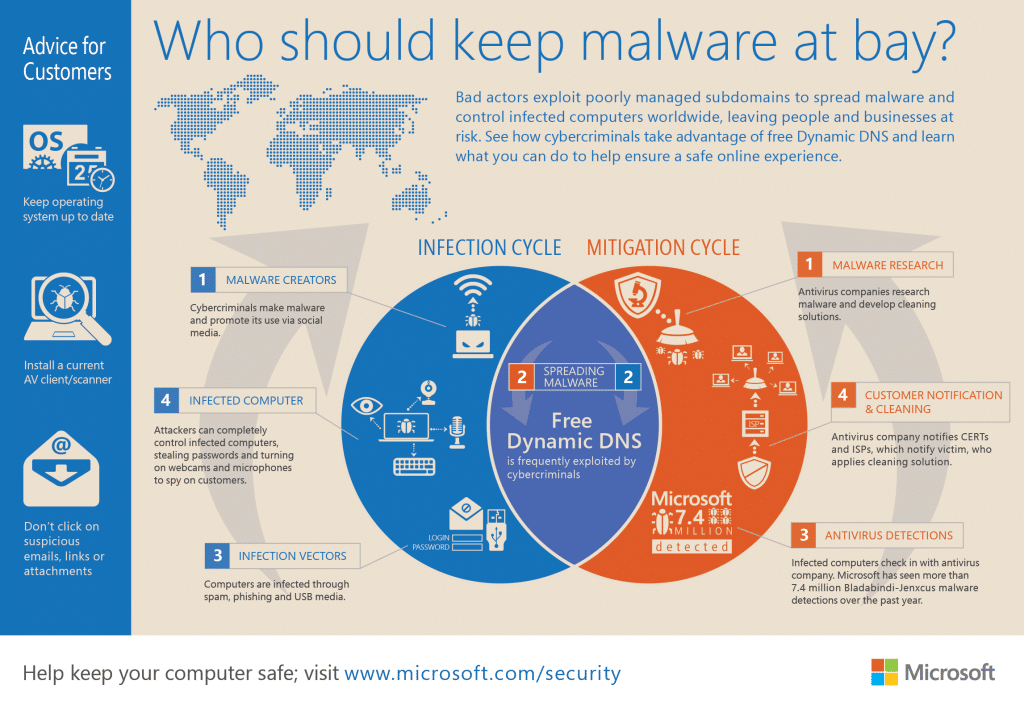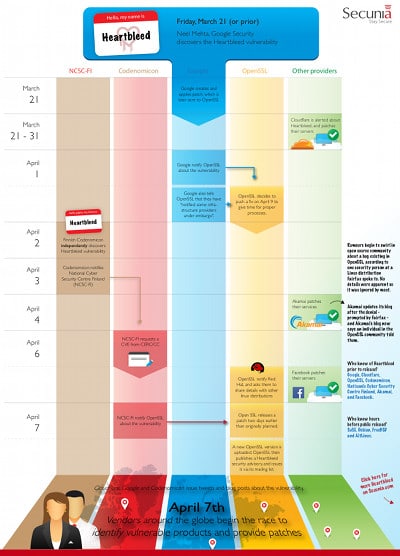A new survey of consumer attitudes and expectations about technology finds that a strong majority of Americans expect wearable technology and biometric security to be common within the next decade. The survey, sponsored by the security company McAfee, asked 1,500 U.S. consumers about lifestyle and technology trends in the home and workplace. The results suggest that consumers are already adjusting their expectations about the future to include pervasive connectivity, a wealth of intelligent devices – and some of the problems that come with both. More than 60% of those surveyed by McAfee said they anticipate having connected appliances like refrigerators that will “automatically add food to a running grocery list if the product is running low.” A strong majority of those polled – 84% – said they were convinced their home security systems will be connected to their mobile device. “As technology, especially the Internet of Things, continues to rapidly advance and […]
Infograph
Report: Community Health Hack Linked To Heartbleed OpenSSL Hole
The security firm TrustedSec said in a blog post on Tuesday that a recent hack of the healthcare network Community Health Services was the result of an attack on the so-called “Heartbleed” vulnerability in OpenSSL. According to TrustedSec, attackers targeted vulnerable VPN (virtual private network) software from Juniper networks in a breach that affected an estimated 4.5 million patients. TrustedSec cited a “trusted and anonymous source close to the CHS investigation” in its blog post. It said attackers were able to glean user credentials from memory on a CHS Juniper device by exploiting the Heartbleed vulnerability. Those credentials were used to login via the VPN to CHS’s network, then move laterally to the servers containing the patient data. [Read more Security Ledger coverage of the Heartbleed vulnerability here.] A separate report by Bloomberg attributed the attack to hackers in China, though it did not provide any evidence linking the attackers to a specific Chinese […]
Report: AdWords Fraudbot Helps E-Commerce Firms Compete
One of the more interesting stories to come out this week is from Brian Krebs over at Krebsonsecurity.com. Writing on Friday, Krebs used his prodigious knowledge of the cyber underground to profile “GoodGoogle,” one of a growing number of specialized online fraud services that helps e-commerce firms target competitors by gaming Google’s AdWords feature. As you probably know, AdWords are one of Google’s biggest sources of revenue. They allow companies with products or services to sell to “bid” on words or phrases (like “Internet of Things”). Users who search on those terms will see hyperlinked ads to the right of their search results that link to a site of the advertiser’s choosing. Advertisers pay a premium to own popular (and lucrative) keywords – more than $40 per click for keywords like “loan,” “insurance,” “mortgage” or “attorney” depending on the word and time of day. Typically, advertisers set a certain daily budget […]
Microsoft Uses Courts To Take Down Malicious, Managed DNS Services
Microsoft Corp. has taken action against yet another cyber crime network, taking control of- and shutting down a managed DNS (domain name system) operated by the firm No-IP that were being abused by cyber criminals, the company said on Monday. The domains were associated with malware families named Jenxcus and Bladabindi that are believed to have infected on some 7.5 million systems, globally. The malicious programs – which are used to spy on the operators of infected systems – use Dynamic DNS services like NO-IP to communicate with command and control systems used to manage infected systems. Dynamic DNS makes the malicious systems more difficult to trace. In a post on Microsoft’s Digital Crimes Unit blog, Richard Domingues Boscovich, the company’s Assistant General Counsel said that the company had filed a civil case on June 19 naming two foreign nationals: Mohamed Benabdellah and Naser Al Mutairi along with a U.S. company, Vitalwerks Internet Solutions, LLC (doing […]
Infographic: A Heartbleed Disclosure Timeline (Secunia)
The dangerous security hole in OpenSSL known as “Heartbleed” has (mostly) faded from the headlines, but that doesn’t mean it isn’t still dangerous. As this blog has noted, the Heartbleed vulnerability was patched quickly on major platforms like Apache and nginx and by high profile service providers like Google and Facebook. But it still has a long tail of web applications that aren’t high risk (i.e. directly reachable via the Internet) and embedded devices that use OpenSSL or its various components. As the folks over at Acunetix note in a blog post today, hundreds of other services, application software and operating systems make use of OpenSSL for purposes that might be entirely unrelated to delivering pages over HTTPS. This includes all the email servers (using SMTP, POP and IMAP protocols), FTP servers, chat servers (XMPP protocol), virtual private networks (SSL VPNs), and network appliances that use OpenSSL or its components. The number of systems vulnerable to […]





